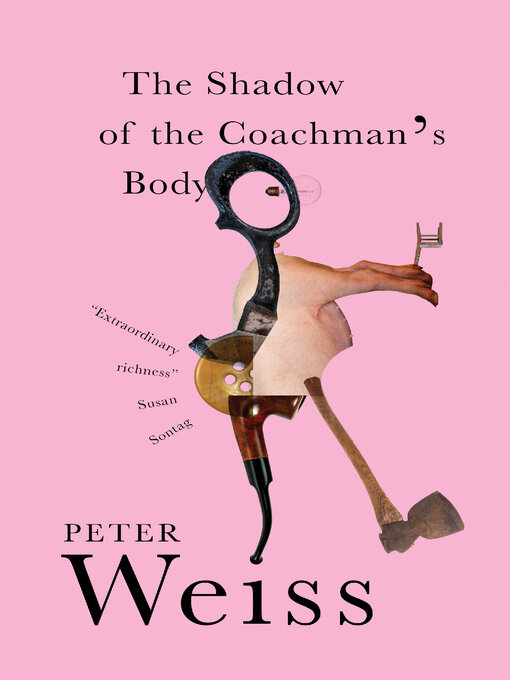A meticulously observed and macabre tale of hell on earth from the revolutionary German author of the famous play Marat/Sade
Peter Weiss's first prose work, The Shadow of the Coachman's Body, was unanimously praised as an original and perfect work of art by critics when it appeared in 1960. Here, in poet Rosmarie Waldrop's stunning translation, Weiss arranges a dark, vividly alive comedy of inert objects in a dismal boarding house—stones, buttons, hooks, needles, chairs, newspapers in an outhouse, clinking tin cups, celestial orbs, sewing machines, an overwound windup music box—which have oblique characters' shadows as their supporting cast. Described by Weiss as a "micro-novel," The Shadow of the Coachman's Body can be obscene, trivial and brutal, and yet it is also peculiarly intimate and offers endless possibilities—like a telescope and kaleidoscope rolled into one.- Available now
- New eBook additions
- New kids additions
- New teen additions
- Most popular
- Try something different
- NYPL WNYC Get Lit Book Club
- Spotlight: Toni Morrison
- See all ebooks collections
- Available now
- New audiobook additions
- New kids additions
- New teen additions
- Most popular
- Try something different
- NYPL WNYC Get Lit Book Club
- Spotlight: Toni Morrison
- See all audiobooks collections

